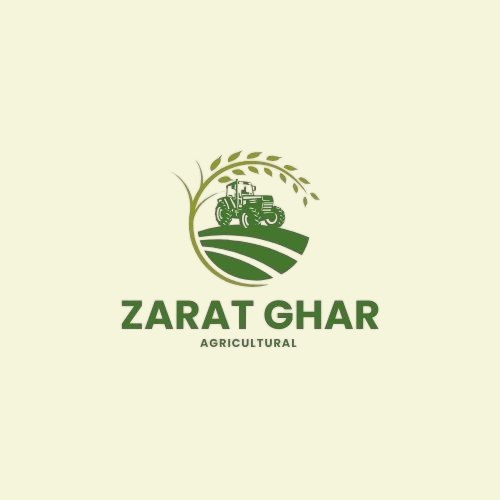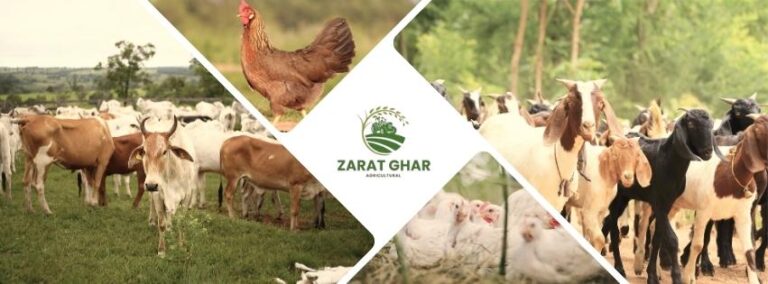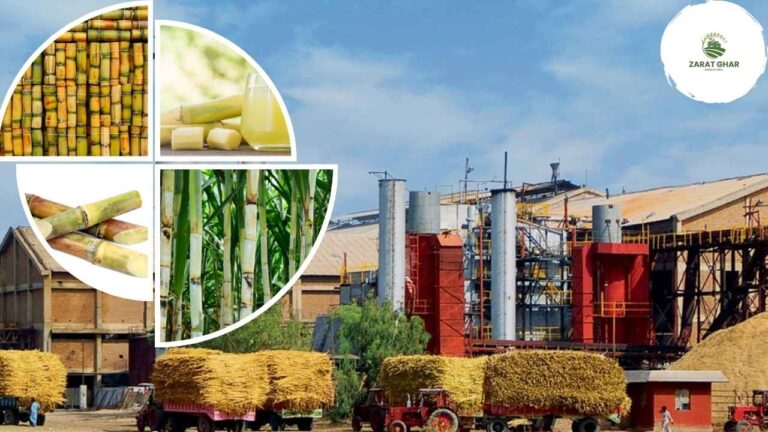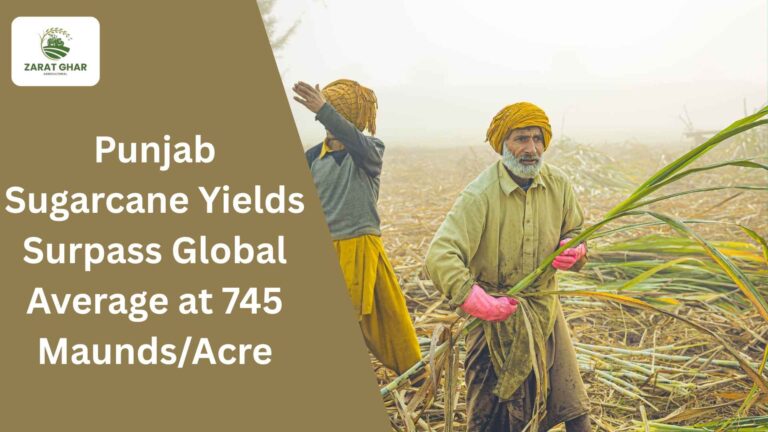Smart Farming in Pakistan | The Future of Farming
Agriculture has been the backbone for Pakistan’s economy , providing livelihoods to millions and contributing to GDP. traditional agriculture faces increasing challenges as a result of climate changes, soil degradation, and water scarcity. The solution? Smart farming is an innovative approach that integrates modern agricultural technology to optimize yields and reduce costs while ensuring sustainable farming practices.
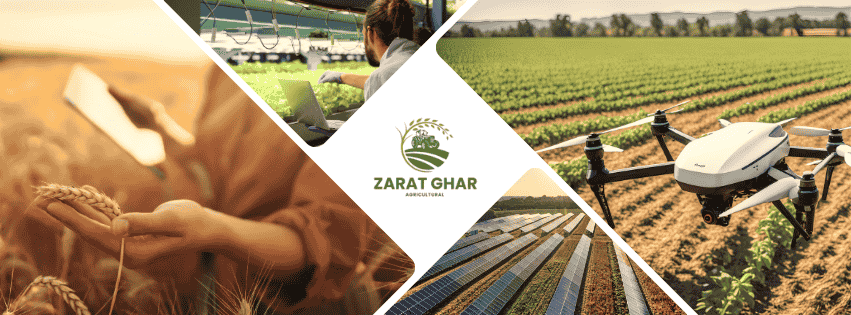
The digital farming market is set to grow from $15 billion to $33 billion globally by 2027. This shows the huge potential of smart agriculture. Pakistan, with its rich agriculture heritage, is on the cusp a revolution in agriculture, where smart farming technologies can reshape farmland for a better and more sustainable future.
What is Smart Agriculture ?
Smart agriculture is also called digital agriculture. It refers to the use AI in farming and precision agriculture. It also includes smart farming systems and climate-smart farming practices. It involves using IoT devices and data analytics, robotics and connectivity technologies to make informed decisions about farming.
Smart farming technologies use real time data to optimize irrigation, soil quality, pest control and weather predictions.
Did You Know? Smart irrigation reduces water use up to 60% and can save millions of liters per year while improving crop health.
How technology is transforming smart farming?
The integration of agricultural technology into traditional farming methods led to a modern, efficient and sustainable agriculture system.

1. Precision Agriculture & IoT sensors
Smart sensors are used in precision agriculture to track soil health and water levels. These sensors provide real-time data that allows farmers to adjust irrigation, pest control, and fertilizer methods accordingly.
2. Robotics and AI in Farming
Modern farming technologies, such as AI-powered drones, robotic tractors and weeding machines, automate labor-intensive activities like planting, weeding and harvesting . AI is also used to monitor crop health, enabling the early detection of pest infestations and diseases.
3. Smart Irrigation & Water Management
Smart irrigation systems are crucial in Pakistan because of the water crisis. Digital agriculture solutions like AI-driven water distribution and drip irrigation ensure that crops get the right amount without wasting water.
4. Climate Smart Agriculture Practices
Climate-smart solutions are needed by farmers to cope with unpredictable weather. Climate risk assessment tools analyze data to predict droughts, flooding, and extreme temperatures. This allows farmers to prepare before disaster strikes.
Did You Know? Using IoT sensors and drones in farming can increase yields by 10-15%. This helps farmers grow more using less.

Recent Impact on Smart Farming Technologies
Recent studies have shown that smart agriculture can cut irrigation water costs by as much as 30% and reduce input costs by as much 60%. This directly boosts the profits of farmers. Precision farming and IoT sensors have been shown to increase crop yields by 10-15%. The smart agriculture market will grow rapidly globally, reaching over $55 billion in 2032. This is due to the increasing adoption of these technologies. Smart farming in Pakistan could lead to better resource management, higher productivity and greater resilience against climate change. It is a game changer for Pakistan’s farmers.
The Role Agri-Tech companies in Pakistan
Several agriculture companies are working to bridge the gap that exists between traditional and digital farming in Pakistan.
Concave Agri: Leading the Smart Farming Movement
Concave AGRI has pioneered the adoption of smart farming systems in Pakistan. It provides farmers with AI-driven analytics and precision farming tools as well as real-time monitoring. By educating farmers on Agri-technology they ensure that sustainable agriculture is mainstream.
Want to build a smart farming system? Contact us for expert advice on IoT-based tracking, precision farming and climate-smart technologies.
The Benefits of Smart Agriculture for Pakistan
Higher yields with lower costs
Modern agriculture technology allows farmers to reduce their input costs (fertilizers and pesticides) while increasing crop yield.
Better Resource Management
Smart Farming Systems optimize the use of water, fertilizers, and energy. They reduce waste and improve sustainability.
Mitigating Climate Change
Climate-smart Farming provides tools to help farmers prepare for disasters and early weather forecasts.
Improved Livestock and Cattle Farming
Smart agriculture technology has a positive impact on animal farming as well. IoT sensors track cattle movement, optimize feeding schedules and monitor cattle health. This improves productivity in cattle farming.
Challenges & solutions for Implementing Smart Agriculture In Pakistan
Smart farming adoption in Pakistan is not without its challenges, despite the promising future.
Lack Of Awareness & Education
Solution Programs such as those offered by Concave AgRI educate farmers on the use of smart farming technologies.
High initial investment costs
Solution Government subsidies as well as agriculture companies offering affordable smart farming solutions that can help bridge the gap.
Connectivity Issues In Rural Areas
Solution: By expanding digital farming networks through satellite connectivity and IoT devices, even remote farmers will benefit.
Did You Know? Livestock Monitoring with Smart Sensors can Improve Milk Production by Up to 20%, Enhancing Farm Income and Animal Welfare.
The Future of Agriculture – What’s Next for Agriculture?
Smart agriculture technology will be a major factor in Pakistan’s move towards a technology driven agricultural future. It will also play a role in ensuring food safety, economic stability and sustainability. Farmers will be able to navigate the modern challenges by integrating AI into farming, precision agriculture and climate-smart agricultural practices.
Governments, agriculture companies and tech startups need to work together to make modern agriculture accessible to everyone. With the right strategies in place, Pakistan’s agriculture sector can become a leader in sustainable farming.
Smart farming is more than a trend. It is the future of agricultural production. Pakistan can achieve higher productivity, resource efficiency and sustainability by embracing digital farming, modern farming techniques and smart agriculture systems.
Solutions like AI-driven analysis, IoT monitoring, and intelligent irrigation are already making an impact. Pakistan’s farmers will thrive in the digital age of farming with increased awareness, government assistance, and private sector innovations.
Let’s build an agricultural future that is smarter and more resilient for Pakistan, one farm at a a time.
See Also;
